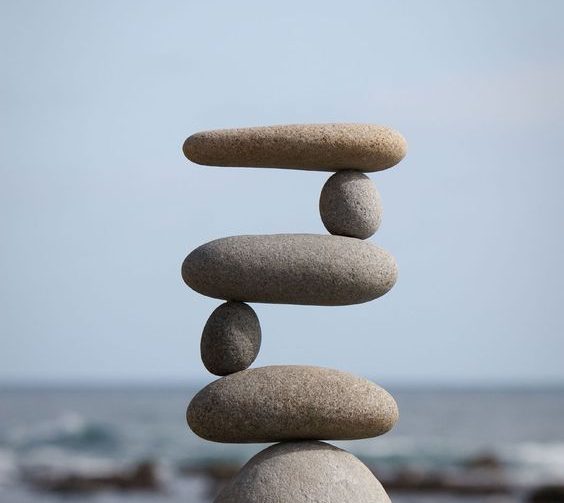In today’s fast-paced, hyperconnected world, the concept of a “balanced lifestyle” has become both an aspiration and a necessity. Well, let’s be real—modern life resembles juggling fire swords while balancing on a unicycle along a tightrope… over an abyss of emails. You get it now?
Amongst work deadlines, relationships, exercise, mental wellbeing, attempting to hydrate, and keeping your hormones sane, seeing “balance” become a reality feels like searching for a mythical place—something between discovering Atlantis and not killing your houseplants.
But this is where I put an emphasis on: equilibrium isn’t being able to do everything right. It’s being able to not get lost in the turmoil or just to not lose your shit. Fortunately, a couple of pretty smart psychologists and philosophers have left us breadcrumbs along the road to a more joyful existence.
Welcome to the Mess (Thanks, Carl Jung)
The great psychologist Carl Jung basically said: “You’re a beautiful, complicated mess—and that’s okay.” He believed real happiness comes from accepting all parts of yourself, even the ones that binge-watch Netflix instead of meditating.
He called this process individuation, which is just a fancy word for becoming your true self. So instead of obsessing over “balance” as some perfect pie chart, try seeing it as an ongoing dance between your responsibilities, your needs, and your guilty pleasures (yes, even that 11pm cookie or glass of rosé).
Therefore, I decided: I am a beautiful mess, and I accept myself as such 😉
Maslow’s pyramid: not just for psychology students
You may have learned about Abraham Maslow in high school psychology class—the guy with the triangle. Abraham said we need to handle our basics (sleep, food, safety) first before we get to good stuff like self-esteem and finding meaning in life.
Translation: If you’re skipping lunch, glued to your laptop (guilty!), and running on three hours of sleep, you’re not climbing any pyramid, you’re crawling through quicksand. Start by meeting your basic needs. Then go for the soul stuff.
Noted?
Aristotelian Tip: Don’t Overdo It With
Good old Aristotle—ancient Greek thinker and unofficial life coach—believed that virtue was in the middle. Too much work? Burnout. Too little work? Boredom. Too much wine? You know where this goes from here.
His Doctrine of the Mean basically tells us: moderation is sexy. Want a balanced lifestyle? Find the sweet spot—not the extreme. (Note: This does not apply to cheese. Aristotle never said anything about cheese.)
Modern Wisdom: PERMA, Baby
Martin Seligman, the cheerful grandpa of Positive Psychology, came up with the PERMA model:

